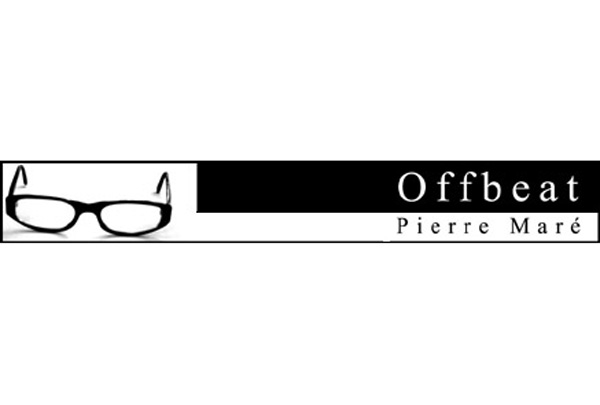
Offbeat 27 November 2015

I’ve been putting off this bit of writing for a couple of years. A confluence of events made it pressing now, so here it is. If you want ‘happy’, read something else.
The first thing that prompts me to write this is opening Peter Hoeg’s wonderful novel Borderliners again. It’s the story of kids used as an experiment by an elite school. The memories came flooding back.
I was part of a school experiment as well. In the Eighties, a bunch of us were assembled in what was Namibia’s first ‘mixed’ public school. The notional threat of ‘black, coloured and white’ didn’t have an impact on me. I came from a series of schools where certain behaviour was expected by virtue of insider status: religion, the culture of a group and money.
Coming from a small, non-nuclear family with no connection to the local cultures, by virtue of my mother’s emigrant status, no formal religious belonging as my mother was divorced, and no money to absolve the family, I was an outsider, not beloved of insiders.
The prospect of the new school, and being an outsider once again, held no particular fear for me. I believed I had experienced everything. The school however turned out great. By virtue of their requirement for smart kids, backed by an IQ test, many of the kids could not easily behave without asking questions, and most of them were outsiders very similar to me.
The teachers were unprepared. Although they could offer ‘normal’ school, school in the mornings, not the afternoons, and decent buildings, not trees or sheds as some of the kids had experienced, they struggled to keep pace, given their reliance on the elements of insider culture: specific types of uniform behaviour and a certain religious mindset.
They weren’t prepared for the fact that the outsiders among us made use of their new found freedom. As I remember it, the first winnowing took place a few months into the first year of school, after a weapons search. The numbers were thinned with the first bunch of expulsions. Smart sometimes means finding ways around the strictures of society, and in some instances the teachers obviously could not guide some of the kids on the far edge of outside back into the fold.
The expulsions became a regular feature: bad behaviour or not making the academic standard. One day a kid was there, one day not. There was a climate of threat and fear, but it was easy to become numbed to it. Being an outsider, it was easy enough to become cynical and uncaring, plus I had a sense of belonging to the other outsiders.
The second thing that brought about this piece of writing was an investigation into the fate of one of the people who disappeared. He was as sharp as a rusty razor. A cut from a clean, bright rasor can be solved with a plaster. A rusty razor leaves some kind of mark. He was bright , he was perceptive and he had different ways of seeing things. Talking to him left a mark.
I talked to him again in the early 90s. He was a painter. He lived on the rough side of life. He had been stabbed in the neck and could hardly speak. He was guarded as well. What I found out this week was that the reason for his disappearance was that he was jailed for rape. He died in the mid-90s.
There was some talk that it was consensual, and the parents of the girl pressured her to call it rape. Perhaps that is an attempt at absolution. Who knows. Let’s say wrong is wrong, and take it from the point that it was a crime. That still leaves the question of who was there to bring him back into the fold? Not the school.
Leaders, teachers and some of Namibia’s most noticeable achievers emerged from that school. Unfortunately some people slipped through cracks, were discarded, and the school produced scars.
I am not sure what the purpose of this column is, other than to shine a light into the darkness, and begin to get it off my chest. Thanks for hearing me out, for reading this far.
If there is anything to say it is probably that outsiders have value as well, and sometimes they need understanding and care. They shouldn’t be discarded.












































